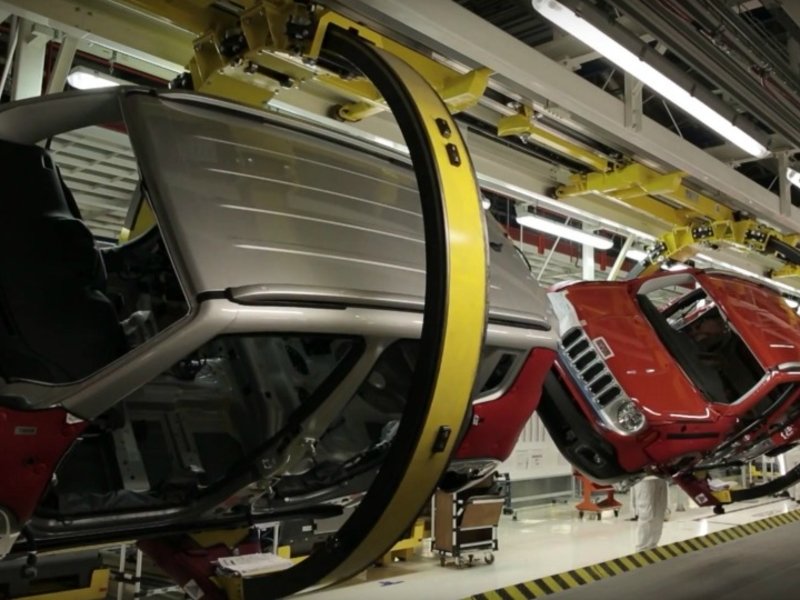
DETROIT — The threat from the coronavirus crisis is closing in on the global auto industry, as Fiat Chrysler Automobiles warned Thursday that a European plant could shut down within two to four weeks if Chinese parts suppliers cannot get back to work.
Meanwhile, Toyota Motor Corp. and Honda Motor Co. are were among carmakers extending shutdowns at their China plants as the country steps up measures to fight the deadly coronavirus.
Toyota, which initially halted its Chinese plants until Feb. 9, said it now plans to resume production as soon as Feb. 17. Honda said it will reopen its factory on Feb. 14 with an eye toward restarting output during the week of Feb. 17.
South Korea’s Hyundai Motor and affiliate Kia Motors also said on Friday that they plan to restart production at their Chinese factories on Feb. 17, from a previously planned Feb.9.
“We will take preventive measures against infection at factories,” a spokeswoman said.
The shutdowns compound the headwinds for automakers in the world’s largest car market, which was already headed for an unprecedented third straight annual decline before the virus started spreading.
The next few weeks will be critical.
Parts made in China are used in millions of vehicles assembled elsewhere, and China’s Hubei province, epicenter of the coronavirus outbreak, is a major hub for vehicle parts production and shipments.
Industry experts said suppliers had built up a cushion of parts in inventory and in-transit ahead of the long Chinese New Year holiday in late January. Those will start to run out if Chinese parts factories cannot get back to work next week, or if flights to and from China remain limited.
Chinese auto parts and assembly plants have extended previously planned New Year’s shutdowns through Feb. 9. But some have pushed the shutdowns out further.
“Almost everybody has some product where they are in trouble,” said Dan Hearsch, a managing director for the auto and industrial practice of consulting firm AlixPartners.
Fiat Chrysler CEO Mike Manley said Thursday the automaker could be forced to suspend production at a European assembly plant if parts do not begin to flow within two to four weeks. He did not identify the plant or vehicles at risk.
Hyundai said shortages of parts from China would force it to suspend production at its South Korean plants.
Other global automakers have not disclosed details about potential disruptions outside China, but have said they are monitoring the risks.
Toyota purchasing chief Masayoshi Shirayanagi said the automaker is “looking very closely at inventories of components” outside China.
General Motors has teams working around the clock to head off trouble, the automaker’s CFO said.
Suzuki said it was looking into the possibility of procuring “made in China” car parts from outside Wuhan. Suzuki does not produce or sell any cars in China, but procures some components there for its plants in India, where it controls around half of the passenger vehicle market via its local unit Maruti Suzuki India.
AlixPartners’ Hearsch said automakers are more likely than in the past to have backup sources of critical parts. They and their major suppliers took steps after the deadly 2011 tsunami that crippled key suppliers in Japan to reduce the risk that a catastrophe at a single factory could shut down assembly lines.
Flexible manufacturing equipment can also be reprogrammed or relocated to produce parts. When a fire at a Michigan supplier plant threatened production of Ford’s high-profit pickup trucks, Ford moved rapidly to relocate production tools to a plant in Ontario.
Still, not all the production from China’s Hubei province can be easily replaced or moved. Hubei is one of 11 Chinese provinces that are responsible for more than two-thirds of vehicle production in China, IHS Markit said in a study last week.
If plants remain idled into March, the production losses within China would become significant, amounting to more than 1.7 million vehicles of lost production during the first quarter, IHS projected.
The South Korean government said on Friday it has asked Chinese regional governments for help in resuming production at South Korean auto parts suppliers’ factories in China.
Due to the production disruption, lines at parts suppliers in South Korea including Hyundai Mobis and Kumho Tire have also stopped, with concerns that the disruption will adversely affect smaller second- and third-tier subcontractors if the disruption is prolonged, the government said.
South Korean ministries also said in a joint statement that, if needed, they will allow affected South Korean suppliers to work extended hours in South Korea to make up for shortfalls.
Even if Chinese regional governments in coming days lift the ban on factory production aimed at stopping the spread of the coronavirus, another difficulty is workers refusing to come to work in fear of the virus, the government said.
Of the roughly 10,000 workers at a South Korean supplier’s Qingdao factory, only about 15 percent can come to work, the South Korean government said.
Bloomberg contributed to this report.